

This slideshow is an encore posting from our State of Inequality series.
Elizabeth Fladung is a Brooklyn-based, CalArts-trained photojournalist. Her work has appeared in The Nation, La Repubblica, The Fader and Wax Poetics Magazine.


It’s a crisp, early morning at the Chatsworth Foursquare Church. A small number of people in worn jackets and winter gear is sitting in the parking lot. Several had awoken at 4 a.m. to leave their sleeping spot at the nearby train yards before security guards showed up for their shift.
This is an encore posting from our State of Inequality series.
A few minutes after nine, the pickup truck they’ve been waiting for arrives, towing a mobile shower unit that sports its provider’s name: The San Fernando Valley Rescue Mission. A middle-aged man with a full, silver mustache steps out of the truck and hands out hygiene items to the folks looking for a few minutes of hot shower.
“Eli is usually the guy who runs this unit, but I’m filling in for him today,” says Jim Real.


Beth Fladung’s images of a food desert in the midst of the most productive agricultural land in the country.
This is an encore posting from our State of Inequality series
Elizabeth Fladung is a Brooklyn-based, CalArts-trained photojournalist. Her work has appeared in The Nation, La Repubblica, The Fader and Wax Poetics Magazine.


It happens every spring: The start of baseball season and the Chamber of Commerce’s assault on legislation designed to improve the lives of Californians – many of them our most vulnerable residents. The CalChamber lobbies against legislation year-round, of course, but brings out its biggest bat in the form of its Job Killer list – a lineup of bills that are demonized as wasteful, overreaching, unfair, etc. The list is a remarkably effective tool and accounts for the chamber’s astronomically high batting average – last year it went 25 for 27 in its efforts to stop “job-killing” legislation. Many a bill that seemed a shoo-in to become law has suddenly found itself permanently stuck in some committee, or vetoed whenever the Chamber persuades the governor to play the role of Mr. September for corporate interests.
Last week the CalChamber released its “preliminary” list of Job Killers.
» Read more about: CalChamber's 'Job Killers' List Returns »


There are many student cars parked at and around Sir Francis Drake High School — some of them expensive BMWs, some environmentally correct Priuses. But when Justice Levine attended classes at this Marin County school, she had to walk to Drake, passing rows of expensive San Anselmo homes. That was nearly seven years ago. Then 14, she would wake up in the morning to an empty house and make her own breakfast — her mother had already left for work for the day.
This is an encore posting from our State of Inequality series
Their rented home — one floor of a modest two-story house — was not well-furnished, most of its fixtures were secondhand and it lacked the semblance of interior decorating. Now 21, Levine describes it as a space she and her mother occupied separately for a long time,
» Read more about: In the Midst of Plenty: Food Stamps in Marin County »
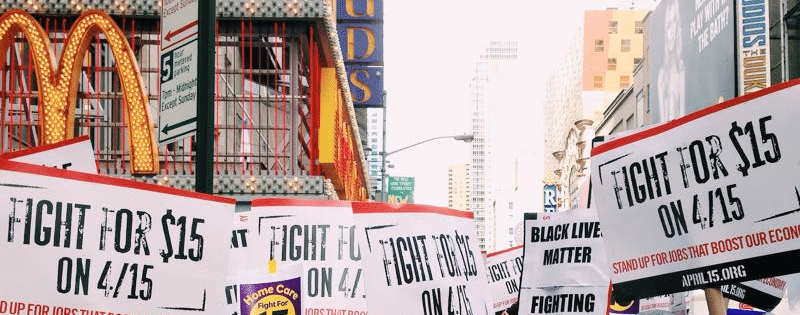
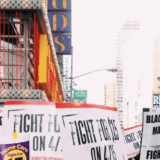
As President Obama’s efforts to nudge the U.S. minimum wage from $7.25 to $10.10 an hour continue to be rebuffed by a Republican Congress, a national coalition of low-wage fast-food and retail workers will be taking their demands for a doubling of the current wage to the streets on Wednesday, in what they promise will be “the largest low-wage worker strike in history.”
Kendall Fells, the organizing director for the Fight for $15 campaign, said the April 15, 200-city walkout will also include actions on about 170 college campuses around the country and abroad.
Wednesday’s one-day strike is part of a three-year campaign spearheaded by the Service Employees International Union and the AFL-CIO to build public support for raising the pay for fast-food and other low-wage workers, a boost that would lift about 12 million Americans above the federal poverty line of $23,850 a year for a family of four.
» Read more about: Minimum Wage Protests Planned for April 15 »


Click the right arrow button to go to the next slide.
[SlideDeck2 id=45066]
This is an encore posting from our State of Inequality series
Elizabeth Fladung is a Brooklyn-based, CalArts-trained photojournalist. Her work has appeared in The Nation, La Repubblica, The Fader and Wax Poetics Magazine.
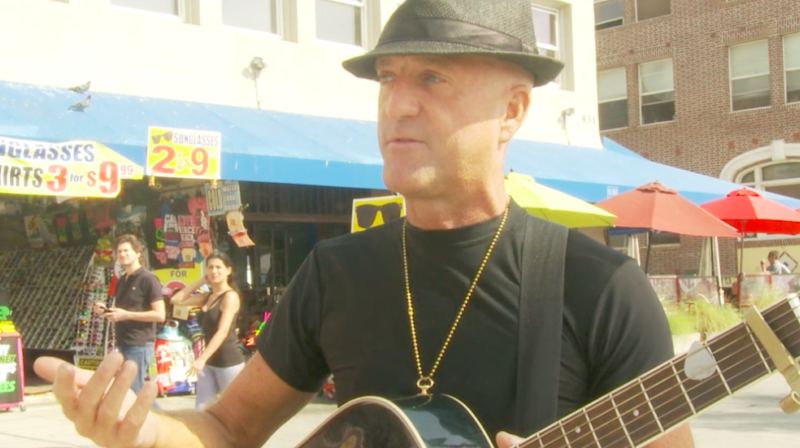

The chord progression of the Red Hot Chili Peppers’ song “Otherside” plays on the south end of the Venice Beach boardwalk. The middle-aged man strumming his acoustic guitar is Gary St. Germain, who spends afternoons performing songs in Venice, Burbank and Hollywood, a black pork pie hat always perched on his head. When he has free time, St. Germain plays in Venice for two or three hours at a time.
This is an encore posting from our State of Inequality series
“I don’t have an amplifier,” St. Germain says. “So I set up where there isn’t too much music blasting and I just play what I love.”
Ironically, the more busy days at Venice seem to benefit him less. It’s the days when curious people stroll by that St. Germain makes 20 to 40 dollars after a few hours. According to St. Germain,
» Read more about: The Way We Live Now: Singing for Supper »
Somerset Waters has the passion of a convert. You can hear it in his voice when he outlines why he set up the only worker-owned cooperative business in Los Angeles.
“It’s really exciting pushing the boundaries of how a small business can operate here,” he says, standing in front of a bank of solar panels outside a residence in Calabasas. “People want a sense of ownership at work, a feeling of justice, a real stake in their working lives.”
Last year, inspired by the Pioneer Valley Solar Co-Op in Massachusetts, and with guidance from co-op resource center LA WORCS, Waters created Pacific Electric, a worker-owned co-op, to see if a different kind of business model could take hold in Los Angeles.
The four-person union firm, which has plans for expansion to 100 owner-members, installs solar and other electrical systems for residential and business customers throughout Los Angeles County.
» Read more about: Workers of the World – Buy Your Own Company! »
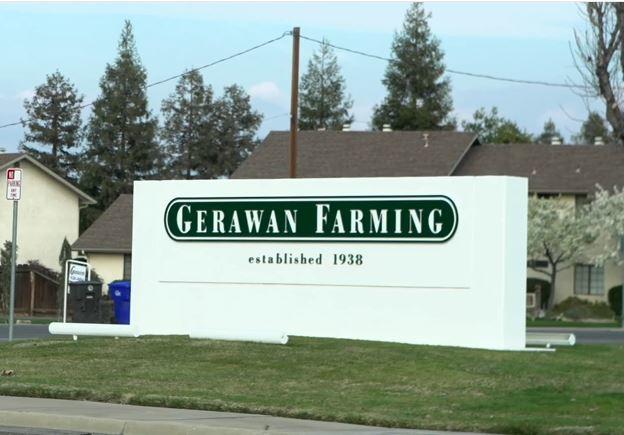

(Yesterday David Bacon examined a decades-long labor war being fought by Gerawan Farming against the United Farm Workers — a union against which the company has been accused of orchestrating a decertification campaign. His reporting concludes today with a look at Gerawan’s political allies and the company’s attempt to overturn a key California labor law.)
As this fight unfolds, national anti-union organizations are moving in. The far-right Center for Constitutional Jurisprudence joined the appeals case. In recent years the Center has joined the Harris v. Quinn suit against the Service Employees International Union in Illinois, sued the California Labor Commissioner on behalf of employers, argued for Hobby Lobby stores against providing birth control for their employees, and supported the initiative to end affirmative action in Michigan.
Furthermore, the Center for Worker Freedom, headquartered in the Washington, D.C. offices of Grover Norquist’s Americans for Tax Reform (ATR),
» Read more about: Conservative Groups Rally Behind Gerawan Farming »


When hundreds of people marched to the Los Angeles City Council last October, urging it to pass a resolution supporting a farm worker union fight taking place in California’s San Joaquin Valley, few had ever heard the name of the company involved. That may not be the case much longer. Gerawan Farming, one of the country’s largest growers, with 5,000 people picking its grapes and peaches, is challenging the California law that makes farm workers’ union rights enforceable. Lining up behind Gerawan are national anti-union think tanks. What began as a local struggle by one grower family to avoid a union contract is getting bigger, and the stakes are getting much higher.
The Gerawan workers got the City Council’s support and, on February 10, the Los Angeles Unified School District Board of Education passed a resolution that went beyond just an encouraging statement. The LAUSD purchases Gerawan’s Prima label fruit through suppliers for 1,270 schools and 907,000 students.
» Read more about: Growers Move to Gut California’s Farm Labor Law »


Sometimes the conventional narrative the media tell about a news story feels so wrong I can’t stand it — but I don’t know why until the story’s over. The recent coverage of the labor dispute at the West Coast ports — including Los Angeles and Long Beach — is a case in point. News reports focused on the long, drawn-out negotiation process as an economic disaster waiting to happen, and blamed the entire situation on those dastardly workers and their unions.
The narrative included several key arguments: A union slowdown at the ports was causing a backlog of shipping containers carrying everything America buys, putting all importers at risk and causing a plague on American shoppers. There would be long-term economic damage to our region as a consequence. With the eventual opening of the widened Panama Canal, shippers would skip the West Coast and head to other ports.


Capital & Main has confirmed that a proposed California law could upend existing minimum wage laws across the state, potentially rolling back wage increases for tens of thousands of people. If passed, the legislation could invalidate wage hikes approved by voters in some of the state’s largest cities, including San Francisco and Oakland. (See original story here.)
Assembly Bill 669 is backed by the California Restaurant Association (CRA) and is being championed by Assemblyman Tom Daly, a Democrat from the Orange County city of Anaheim.
The legislation’s target is tipped workers – under Daly’s proposal, the minimum wage for workers who receive tips would be capped at $9 if their total hourly compensation, meaning base wage and tips, is $15 an hour or more. If, for example, an Oakland waitress earns that city’s current minimum wage of $12.25 an hour, and additionally makes $3 in hourly tips,
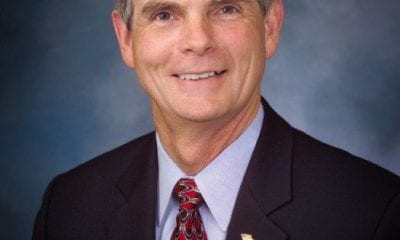
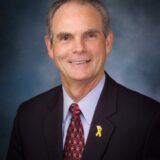
Last month former San Jose mayor Chuck Reed took the first step toward offering a promised draft of a 2016 public pension cutting initiative that, he has hinted, will target the California Public Employees’ Retirement System. CalPERS manages the retirement and health benefits for more than 1.6 million California public employees, retirees and their families. Reed tried to get a pension initiative on the ballot in 2014, only to withdraw the measure when state attorney general Kamala Harris assigned it a ballot description that Reed and his allies believed would hurt their chances with the electorate.
This time, however, Reed could find his campaign in danger from an unexpected source – conservative allies who might be worried that his initiative’s very presence on the ballot will draw huge numbers of liberal and union voters – who would then also vote against conservative candidates running for local and state office.
» Read more about: Pension Cutters' 2016 Ballot Obstacle: Voters »


As this series has made clear, “The California Chasm” is a challenge that threatens to transform the state into a shadow of its former self. Once a place where people came together to realize fortunes, remake their lives and attain their piece of the American Dream, we have become a state saddled with sharp differences in social, economic and health outcomes due to race, place and class.
This is an encore posting from our State of Inequality series
The resulting division is damaging to our sense of community but it also leaves the potential of our residents untapped. With research increasingly demonstrating that more equitable strategies can produce more sustainable growth, we need to create a conversation about how California can lead the nation not in inequality but in opportunity.
We have the know-how —
» Read more about: Twelve Ways to Reverse Inequality and Close the "California Chasm" »


California is one of only seven states that pays tipped workers their state’s minimum wage instead of the penurious $2.13 (the federal minimum) to $5 range. California’s wait staff and other service workers collect a $9 hourly minimum—plus gratuities. Legislation will raise the state minimum wage to $10 hourly next year. But that won’t apply to tipped workers, if a proposed bill passes the California legislature and becomes law.
Assembly Bill 669 was sponsored by the California Restaurant Association (CRA) and introduced by Assemblyman Tom Daly (D-Anaheim). Daly’s bill would cap the minimum wage for California’s tipped workers at $9 if they earn a total of $15 hourly. Far more disturbing to low-income service employees, however, is a passage embedded in the bill that could undo local minimum wage ordinances previously approved by voters in Oakland, Richmond, San Francisco and San Jose.
Those measures would be overturned unless they “specifically reference” the Daly bill’s language – an unlikelihood,
» Read more about: Will a New California Bill Trump Minimum Wage Ordinances? »


Unlike restaurant menus, community and democracy don’t work “à la carte.” We do not get to pick the laws we want to follow. The owners of Los Angeles’ trendy Golden Road Brewing seem not to understand this. As they champion one notion of “community,” they turn their backs on the actual people who compose the community.
In a recent L.A. Times piece on how a minimum wage increase will affect city businesses, Golden Road’s Tony Yanow (who also owns the Mohawk Bend and Tony’s Darts Away gastropubs) balked: “I love L.A., but that doesn’t mean it’s my best bet,” he told the Times. “Do you want to go somewhere where you can make money, or do you want to go somewhere where they’re stacking the cards against you?” He went on to engage in some not-very-subtle threat-making, noting that if L.A. increases its minimum wage, he may shift operations to neighboring,
I recently interviewed one of the country’s unabashed progressive leaders, New York Mayor Bill de Blasio. Our discussion ranged from Ronald Reagan’s legacy to the failures of contemporary Democrats to stand up for their values. “We have an income inequality crisis in this country that will endanger the future of the entire United States of America,” de Blasio told me. We present here the fourth in a series of clips from that interview. (Full transcript here.)
Danny is communications director at LAANE and the publisher of Capital and Main. He has led LAANE’s communications efforts for the past decade. He has attracted national media attention for numerous LAANE projects, including the successful effort to stop Wal-Mart from building a superstore in Inglewood and the drive to bring living wages to hotel workers in Santa Monica.
Read more articles by Danny Feingold
» Read more about: Watch Now: Bill de Blasio on Economic Inequality »
I recently interviewed one of the country’s unabashed progressive leaders, New York Mayor Bill de Blasio. Our discussion ranged from Ronald Reagan’s legacy to the failures of contemporary Democrats to stand up for their values. “We have an income inequality crisis in this country that will endanger the future of the entire United States of America,” de Blasio told me. We present here the second in a series of clips from that interview. (Full transcript here.)
Danny is communications director at LAANE and the publisher of Capital and Main. He has led LAANE’s communications efforts for the past decade. He has attracted national media attention for numerous LAANE projects, including the successful effort to stop Wal-Mart from building a superstore in Inglewood and the drive to bring living wages to hotel workers in Santa Monica.
Read more articles by Danny Feingold » Read more about: Watch Now: Bill de Blasio on the Current Economic Crisis »
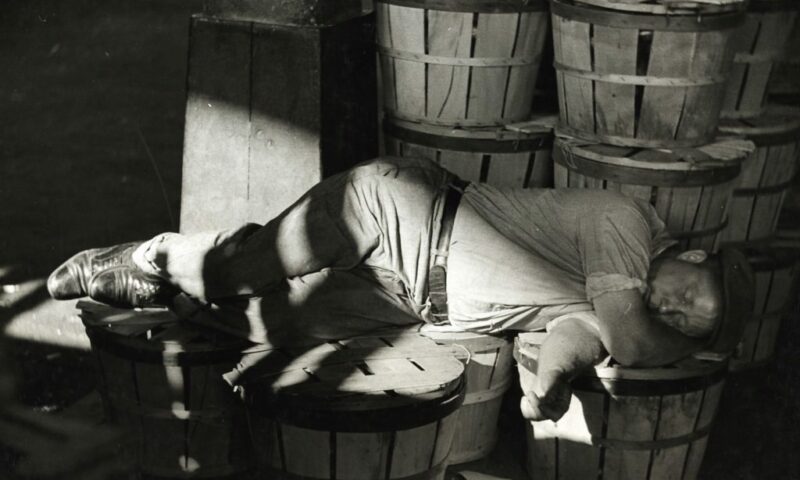

Our friend showed up late in the evening from Northern California to spend a couple of days with us before pushing on in a long-planned vacation. But when I woke up the next morning, he had been up for hours. I found him surrounded by three screens and his cell phone – solving a tech problem for his company.
“Auspicious beginning of a vacation,” I said. “I thought you were supposed to leave all that behind.”
“Oh, no,” he said, “not at my pay level.”
And so it goes. “No rest for the weary and the wicked go free.” That was an oft repeated phrase an early mentor in work mumbled as he sipped on yet another cup of coffee and ran to yet another customer. He may have been obsessive and wired, but he only worked a 40-hour week. None of us worked more, except the boss now and then.